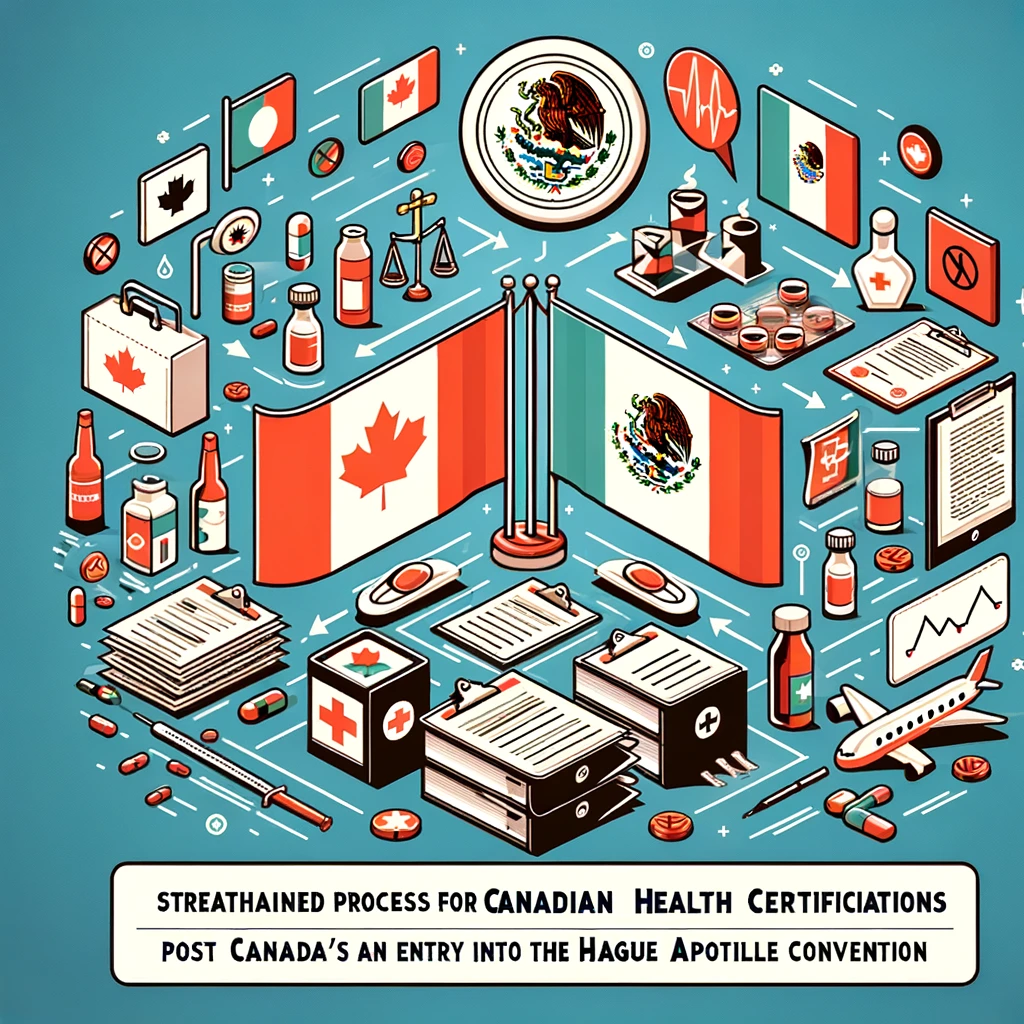Streamlined Apostille Process for Canadian Health Certifications in the Mexican Market
As of January 11, 2024, Canada's accession to the Hague Apostille Convention has greatly simplified the validation process for Canadian health certifications in Mexico. Now, Canadian companies only need an Apostille for the use of Health Canada's Certificate of a Pharmaceutical Product (CPP), Good Manufacturing Practices (GMP) certification, and Medical Device Licence (MDL) in Mexico. This guide provides an overview of the updated process for registering these certifications for the Mexican market.
Understanding the Mexican Regulatory Landscape
Mexico's Federal Commission for the Protection against Sanitary Risks (COFEPRIS) mandates strict compliance with local regulations for all health products sold within its borders. This includes specific registration and labeling requirements, and the submission of relevant certifications to demonstrate adherence to Mexican standards.
Key Health Canada Certifications
- Health Canada Certificate of a Pharmaceutical Product (CPP): This certification confirms a product's authorization for sale in Canada, meeting the stringent safety, efficacy, and quality standards set by Health Canada. Canadian companies must initially apply to Health Canada and pass a detailed review process to acquire a CPP, which then becomes a crucial part of their registration dossier with COFEPRIS.
- Good Manufacturing Practices (GMP) Certification: This certification is vital for demonstrating that a product's manufacturing process adheres to high-quality, safety, and efficacy standards. GMP certification can be obtained either from Health Canada or recognized third-party entities.
- Medical Device Licence (MDL): Similar to a CPP, an MDL is necessary for companies aiming to market medical devices in Mexico. It certifies that the device is authorized for sale in Canada and meets Health Canada's rigorous standards. Acquiring an MDL involves a comprehensive review process by Health Canada.
Simplification with the Hague Apostille Convention
With Canada's participation in the Hague Apostille Convention, the previously complex authentication and legalization process for documents has been significantly streamlined. Canadian health care companies now need only obtain an Apostille for their documents, eliminating the need for separate authentication by Global Affairs Canada and subsequent legalization by the Mexican embassy or consulate.
The Apostille Process
To secure an Apostille, companies first may require notarization of their documents by a Canadian lawyer or notary public. Following this, an Apostille can be obtained, which is recognized and accepted by Mexico, thereby expediting the registration process. Canadian companies now have a more efficient pathway to register their health products in Mexico, thanks to Canada's entry into the Hague Apostille Convention. By adhering to these streamlined procedures and leveraging expert support, businesses can effectively navigate the regulatory landscape and successfully introduce their health products to the Mexican market.
Partner with Global Document Solutions for Expertise
Navigating the nuances of international regulations can be daunting. Global Document Solutions offers over 30 years of expertise in ensuring a smooth and timely process for obtaining Apostilles and managing the overall registration process for Canadian health products in Mexico speak to one of our friendly experts today!


